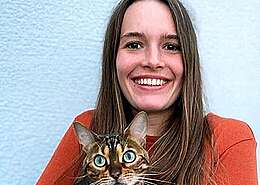The Advisory Board on Cat Diseases
The Advisory Board on Cat Diseases
ABCD Europe is an independent panel of veterinary experts on feline infectious diseases. Using an evidence-based approach, we promote disease prevention and control for improved feline health and welfare.
Mission Statement
Our prime objective is to define a code of practice that reflects the present state of knowledge on infectious diseases of the cat.













